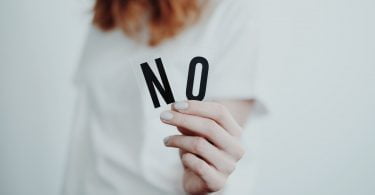You would have to have been living under a stone not to be aware of the most recent celebrity child abuse conviction of Rolf Harris.
You would have to have been living under a stone not to be aware of the most recent celebrity child abuse conviction of Rolf Harris. You also would have had to been under that same stone to not hear about the online abuse Vanessa Feltz encountered when she revealed she’d been indecently assaulted by Rolf Harris whilst presenting live on the Channel 4 programme Big Breakfast.
Online abuse
One Twitter user described her as a, ‘fat, attention seeking t*rd’ and another said “Apparently Rolf had a crack… To be fair, everyone has an off day” with the hashtag of #bargepole.
This is in response to a woman who has been assaulted, presumably while others in the studio were watching (what on earth they were doing while this was going on is another question altogether) a woman who really deserves the same sympathy and support any other victim of sexual assault does.
So why is it alright to send her abuse? Do these people still hold this misogynistic idea that it’s some form of attention seeking and worthy of derision, and would these people abuse her to her face or are they just hiding behind their keyboards?
The influence of social media
Social media has a long affiliation with bullying in general. There are plenty of school children who can testify to that. Social media facilitates this and makes it easier as people are accessible 24 hours a day, 7 days a week. School holidays? Middle of the night? It doesn’t matter: have social media, can bully.
Let’s face it, the men on Twitter, and I could only find evidence of it being men, who sent abuse to Vanessa Feltz more than likely don’t know her, and certainly don’t like her. Social media makes us accessible to all: friend or foe. The internet and even email and messaging services make this kind of thing so easy, because essentially you just say whatever you want from behind the safety of your keyboard.
Not just celebs
But it’s not just Vanessa Feltz who’s been at the receiving end of this sort of behaviour. It happened to me when the first article I ever wrote received comments doubting, to put it more politely than they did, that I was female because I couldn’t possibly write a science article being a girl. Misogyny at its finest!
We’ve also had in recent weeks the ‘Magaluf Girl’story with the video footage spreading round social media like wildfire. Twitter and the media in general was awash with negative opinions about this girl and, admittedly, her moral compass at that time was certainly pointing a lot further south than most of ours do.
Whatever she was or wasn’t promised, however drunk she may or may not have been, performing oral sex on 24 men, however briefly it was, is pretty questionable behaviour.
It takes two to tango
But there’s been no outrage against the men in the story. Why is this? There they are, genitalia on show, happily putting it in the mouth of a stranger. In some ways they could be considered worse than the girl in question, she, at least, kept her private areas private and after all, it takes two to tango.
So where is the lambasting of these men? Where’s the media coverage of how their parents feel about it, how they are now home repenting for their sins? Why isn’t Twitter awash with how outrageous their behaviour is?
Just like the non-existent furore about why the television crew did nothing to help Vanessa Feltz while she was being assaulted, it simply doesn’t exist.
We hear of break-up porn: again, it’s another way in which women are morally and socially attacked by men using social media, quite often when they’ve done nothing more than have a healthy sex life with their partner in a relationship that has, for whatever reason, ended.
There are countless examples of social media facilitating misogyny, and by doing so it normalises and perpetuates this antiquated attitude. While we talk of ways to curb distasteful Tweets and posts, we ignore the bigger issue which is that until we truly judge both sexes by the same moral standards, it’s not going to change.
And that’s one way in which we really need to look to ourselves to do something about it.
How do you think we can tackle misogyny in the digital age? Let us know in the comments below.
Photo: Allan Ferguson / Flickr








